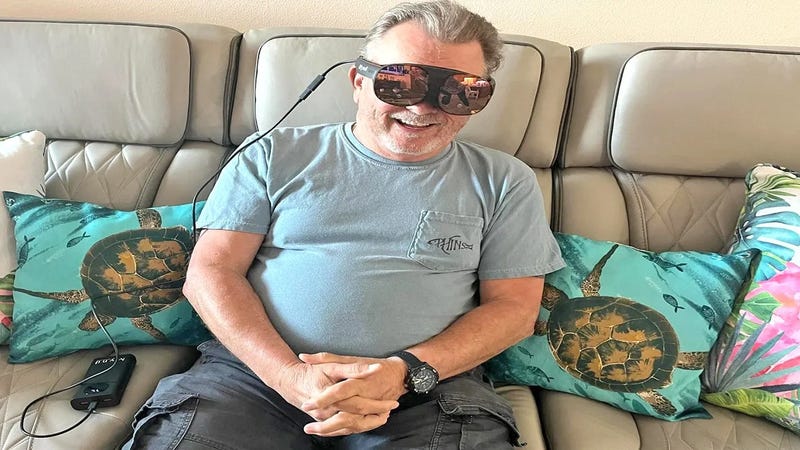
Gulf Coast VA’s Virtual Reality Home Use program celebrated its one-year anniversary earlier this year.
Established in January 2024, the initiative coincided with efforts to streamline and bolster documentation and data collection for immersive therapy within the healthcare system.
Over 250 veterans are now benefiting from having this technology available to them in their home to enhance therapeutic efforts for conditions such as pain, anxiety and stress.
Virtual reality is defining a new landscape of health care for veterans by fostering a deeper connection to therapy through sight, sound and touch.
The VR Home Use program empowers veterans by providing access to therapeutic virtual experiences that reduce pain, alleviate anxiety and support self-care, all from the comfort of home.
The program follows a carefully structured process to ensure seamless integration and veteran success. Veterans complete their first VR session in a clinical setting, guided by trained staff to ensure safe, effective use and suitability. Clinicians document the session using a Virtual Reality Note, generating an auto-consult to the prosthetics department, which then approves and ships the device directly to the veteran’s home.
Veterans return for an in-person evaluation at 90 days to assess the effectiveness of VR as a supplement to veterans' care.
Key to the program’s success was a robust education and promotion strategy. Staff training and buy-in was prioritized through open house events, town hall presentations and demonstrations of VR headsets.
After establishing staff readiness, a promotion campaign was launched in March 2024. Banners in waiting areas, participation in veteran-facing events and live demonstrations helped inform veterans about the cutting-edge opportunity.
“In a one-year retrospective collection of data, we have noted potential improvement of pain management and anxiety reduction for veterans who subsequently utilized VR as an intervention, indicated by a 37.4 percent reduction in pain scores, a 29.5 percent reduction in anxiety scores and a 43.2 percent reduction in stress scores,” said Kristy Antonucci, innovation specialist.
The team is also committed to expanding access to veterans, sharing resources and lessons learned to help other facilities replicate this groundbreaking model.
“Having the framework within VA to support the forward motion of innovative programs and technology has been and will remain crucial in getting more options to veterans in their homes as we look to the future,” said Sheena Strong, innovation specialist.
